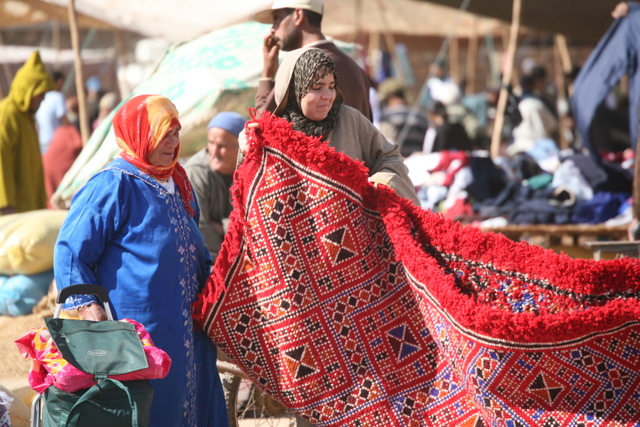Amid the COVID-19 crisis, millions of Moroccan merchants and small store owners are living in a state of uncertainty, anxiously awaiting the government’s solution to their imminent financial challenges.
In the handicraft sector, an industry that employs about 2.3 million Moroccans and contributes to 7% of Morocco’s GDP, the situation is alarming.
“As a worker in the handicraft sector, I feel like I am at a crossroads. Every end of the month, I have obligations with my suppliers and customers,” Badr Andaloussi, a traditional clothing artisan from the Fez medina, told MWN.
While cash is the norm in commercial transactions across the country, traditional craftsmen and workers in the handicraft sector employ a different method of transaction: Commercial papers.
Commercial papers are an unsecured promissory note with a maturity period that could vary between six months and a year. Companies issue the papers in order to extend their costs over several months and meet their short-term obligations.
Commercial papers continue to circulate, from supplier to artisan, from artisan to merchant, until they reach maturity and transform into cash. However, workers in the handicraft sector fear that commercial papers will lose their value during the COVID-19 crisis.
This method of transaction “will cause severe consequences in the upcoming days,” said Andaloussi.
Not only do workers face a mobility problem cashing their papers during the national lockdown, the companies issuing the papers are also unable to pay their obligations due to the suspension of their activities, rendering the papers invalid.
Having suspended their income-generating activities due to the state of emergency, and not knowing if they can cash their commercial papers, Moroccan artisans and merchants face difficult uncertainty.
“How can a simple merchant meet their obligations and maintain the trust of their suppliers in these conditions? How can they continue their activity after the crisis if they lose this trust?” asked the Fassi artisan.
Workers in the handicraft sector not only face the risk of bankruptcy, they also face the risk of legal prosecution if the commercial papers they received in their transactions turn out to be invalid.
Despite the government’s unprecedented and bold measures to address the coronavirus crisis and reduce its impact on the national economy, the Economic Monitoring Committee (CVE) has not yet addressed the situation of Moroccan artisans and merchants in the handicraft sector.
The committee has approved measures to assist workers and employees whose professional activities were suspended with monthly stipends ranging from MAD 800 to MAD 200 ($80-$200). However, it remains to be seen whether the compensation will apply to merchants and small businesses in the handicraft sector.
While the monthly allowance would help with day-to-day necessities, it would not protect the merchants from the legal consequences of possessing potentially invalid commercial papers.
One solution to help merchants in this area could be the postponement of all commercial papers’ maturities for three or four months to allow companies to recover and fulfill their financial obligations, depending on the development of the COVID-19 crisis.
“I think banks and companies should only accept cash transactions now and suspend cashing cheques or commercial papers until the end of the crisis,” suggests Andaloussi.

